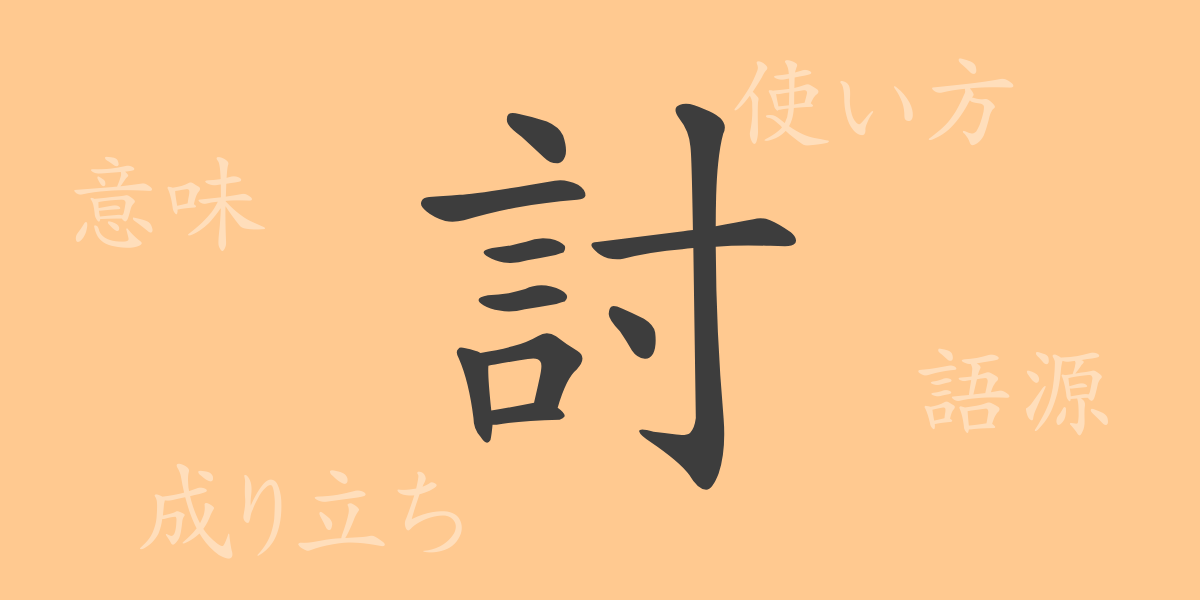Kanji not only shapes the Japanese language but also plays a crucial role in cultural and linguistic contexts. ‘討 (とう)’ is one of the frequently used Kanji, deeply embedded in history, culture, and the way we use language. This article delves into the character ‘討’, exploring its meanings, origins, and everyday usage, along with phrases and proverbs that utilize it, unraveling its rich applications.
Origins of ‘討 (とう)’
The Kanji ‘討’ originated in ancient China, symbolizing the resolution of issues through discussion and debate. It is composed of ‘言 (word)’ as the radical and ‘寸 (to strike)’ indicating an action, literally translating to ‘strike with words.’ This combination gave rise to meanings associated with discussing and achieving through conversation, and it has evolved to include broader implications such as attacking or inquiring.
Meaning and Usage of ‘討 (とう)’
‘討’ carries meanings like to attack, to strike down, and to question. It is commonly used in contexts such as attacking enemies, vanquishing evil, or achieving justice, as well as in debating and inquiring within discussions. Thus, ‘討’ can denote direct physical attacks or debates and discussions, emphasizing its versatility.
Readings, Stroke Count, and Radical of ‘討 (とう)’
The Kanji ‘討’ is essential in understanding various aspects of the Japanese language.
- Readings: On’yomi ‘トウ’, Kun’yomi ‘う・つ’
- Stroke Count: 10 strokes
- Radical: 言 (word)
Phrases, Idioms, and Proverbs Using ‘討 (とう)’
There are numerous phrases and idioms involving ‘討’, each with unique meanings and backgrounds. For instance, ‘討論 (とうろん)’ means to engage in a debate, ‘討伐 (とうばつ)’ refers to attacking to eradicate evil, and ‘討ち死に (うちじに)’ describes dying in battle. These expressions are frequently used to convey strong actions or intentions in Japanese.
Conclusion on ‘討 (とう)’
The Kanji ‘討’, as indicated by its form and meanings, symbolizes attack and inquiry through words or actions. In Japanese, it is commonly employed in contexts like debates (‘討論’) and just actions (‘討伐’), typically seeking active measures or justice realization. Thus, ‘討’ transcends being merely a character; it carries significant weight in conveying potent messages within the Japanese language.

























